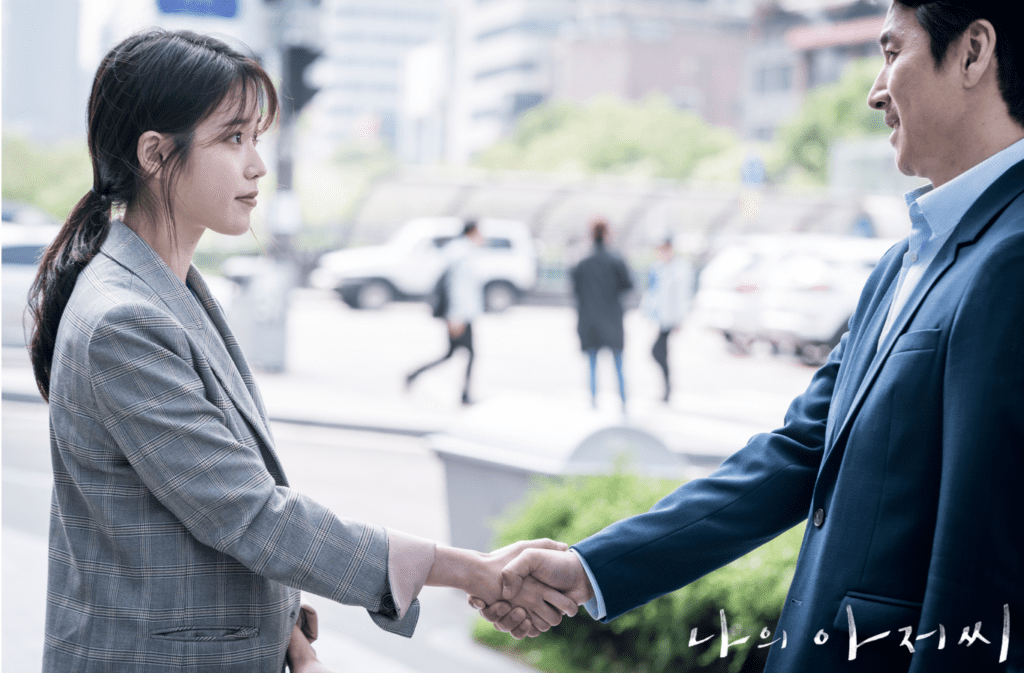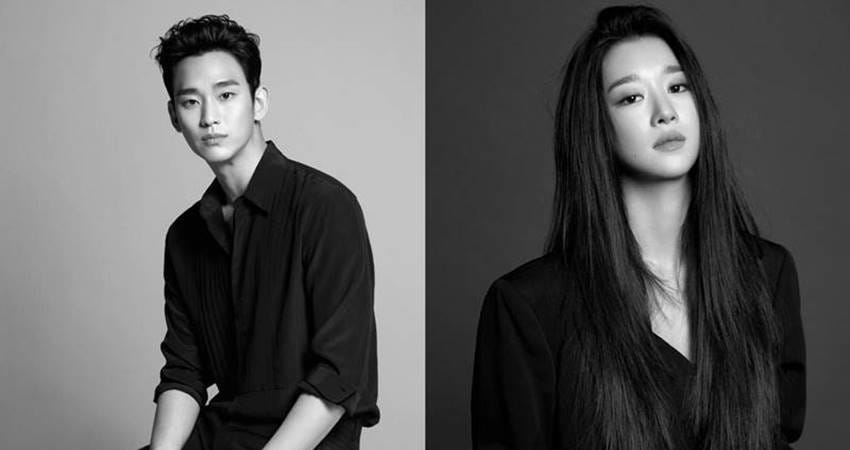Beyond "Parasite," Lee Sun-kyun's "My Mister" is a Must-see
“When you feel like you want to die, don’t die. Hang in there."
There is a line in the penultimate episode of “My Ahjussi” (나의 아저씨) — or “My Mister” — where Lee Sun-kyun’s character offers encouragement to a despondent young woman:
“When you feel like you want to die, don’t die. You’re a good person. Hang in there. I'm cheering for you."
I’m guessing that many fans of the late Korean actor thought of that scene when news broke that Lee had died (most likely by suicide) this past December 27.
Though Lee is best known internationally for his role as the wealthy Mr. Park in the Academy Award-winning 2019 film “Parasite,” “My Ahjussi” is one of his best pieces of work. And if you’ve been on the fence about watching it… or you’re looking for a thoughtful series to watch that also deftly tackles socio-economic issues, I highly recommend this 2018 series.
“My Ahjussi” focuses on Dong-hoon — played by Lee — who’s a mid-level engineer living a mundane life. He works hard, hangs out with his brothers every evening and goes home to a house where his wife is rarely there. And if she is, she holes away in her home office and ignores him. It can’t be a coincidence that the set designer chose an apartment complex that looks more like a prison than a home for their residence.
Early on, we learn that she is having an affair with one of his colleagues, who he despises. It’s easy to view her as the villain, and that’s exactly what the series set out to do in the beginning. But as we learn her backstory, we understand why she chose to cheat on her husband and how she will deal with the consequences of her actions. That doesn’t mean we forgive her actions though.
At work, there is a quiet temporary worker named Ji-an (Lee Ji-eun aka the pop star IU), who keeps to herself. She is unkempt, wearing the same dirty Keds every day. Sometimes she shows up with bruises on her hands and face. No one asks her what happened and she doesn’t confide in anyone, because she has no one.
Dong-hoon and Ji-an get embroiled in a game of cat and mouse, with Ji-an manipulating several people to get the information she wants for the financial payoff that she needs to settle her family’s formidable debts. (Her parents are out the picture and she is responsible for caring for her elderly, deaf grandmother.) The characters are about half a life-time apart in age. She is 20 and he is in his mid-40s. I really, really didn’t want this to turn in to a typical K-drama where she would fall in love with him and he would rescue her. (More on the at in the Spoiler Alert below.)
The way Ji-an obtained her information was fascinating and thrilling, giving this sometimes slow-moving series a jolt of spy-like energy. But the best moments were the quiet ones, where the characters spoke little and you could sense their emotions through their facial expressions.
I would’ve liked to have seen more about the history between Ji-an and Kwang-il (Jang Ki-yong), the loan shark who takes delight in harassing her and beating her at will.
The subplot that I didn’t care for at all was between an actress and Dong-hoon’s younger brother — a former director who peaked at 20 years old and flailed around jobless. She turns up one day to say that he ruined her life by taking away her confidence by yelling at her so much when the two worked together years ago. Fine. Everyone knows he was/is a jerk. But she kept returning to hang on to him. It was just unbelievable and I knew that the scriptwriters would try to force a relationship between them and I was internally screaming, “Noooooooooooo. The two are a train wreck.”
Airdates: Sixteen episodes — each about 90-minutes long– aired on tvN from March 21 to May 17, 2018. (I watched this on Viki.)
Spoiler Alert: Dong-hoon wasn’t without fault in the disintegration of his marriage. Instead of going home to have dinner with his wife, he went to eat with his brothers at their mother’s house. He went out drinking with them every night. Family time to her meant him, her and their son (who was conveniently away studying abroad). For him, his mother, brothers and neighborhood friends were such a big part of his life that he had to see them on an almost daily basis. I’m not sure if he was using his family as an excuse to not be around her, or if she used the same excuse to have an affair. But in an odd way, it appeared that she loved him more than he did her. After his initial anger at her betrayal, he forgave her, but I never got the feeling she forgave herself.
Ji-an grew up without parents. I don’t remember what happened to her father — maybe he died? But her mother ran up an excessive amount of bills and skipped town, leaving her with Ji-an’s grandmother. Her debts were left for Ji-an to repay. (Only later does she learn from Dong-hoon that she was never legally responsible for her mother’s debts. But because she was young and uneducated, she didn’t know any of this.)
As children, Ji-an and Kwang-il were good friends. He even had a crush on her. When his abusive father beat them both, he would carry her away to safety. But he grew up to be just like his father. When Kwang-il’s father beats her and then beats her grandmother, she stabs and kills him. Because she was underage and it was self defense, she was never sent to prison. But after this, Kwang-il made it his mission to make her life miserable. Only at the end of the series does he show any inkling of humanity by helping out Ji-an and Dong-hoon.
One of the sweetest moments in the series revolves around the death of Ji-an’s grandmother. At her sparse funeral, no one is there to pay their respects to Ji-an except for Dong-hoon and his brothers. His eldest brother, Sang-hoon, is a screw up, but he’s soft-hearted. He takes all the money he has managed to squirrel away and spends it on the funeral, making sure that there are enormous flower arrangements to fill the hall. The brothers call all of their neighborhood friends to attend. They purchase enough food to lavishly feed all the guests.
To some, it may seem to be a waste of money to spend all that on someone who is dead. But funerals are for the survivors, and Sang-hoon wanted Ji-an to have a beautiful memory on one of the saddest days of her life. He thanks her for allowing him to do this, saying this was the best day of his life. She tearfully thanks him and says it’s the best day of her life, too. Clearly she wasn’t happy her beloved grandmother was dead. But this was one of the few times when anyone made such a big effort on her behalf.
Ji-an goes off to work in Busan and reunites briefly with Dong-hoon outside a Seoul cafe. He is still married and is the CEO of his own company, which is doing well. She is excelling at her job and has been transferred to the main office in Seoul. She was able to start fresh and now has a group of friends her age, who know nothing about her complicated past. The two look happy as they watch each other walk away.
There is a very sweet scene in the finale where Ji-an is teaching sign language to a class of adults. This was just one way that she was sharing her grandmother’s legacy.
NPR invited me to talk about Lee Sun-kyun’s tragic death on the Weekend Edition Sunday podcast with Ayesha Rascoe, which aired today (Jan. 7). For those who are interested in listening to it, the podcast goes quickly at just under six minutes long:
If you are suffering from suicidal ideation, call or text 988 in the United States.
Globally, contact Befrienders Worldwide or the International Association for Suicide Prevention for crisis centers near you.
© 2024 JAE-HA KIM | All Rights Reserved







I am so glad you are recommending this to others. It is my all time favourite K-drama. The writing is so good and the acting is superb. Ultimately a very uplifting story that insists that thoroughly decent and good people do exist. Thank you.
I recently re-watched this, and I will say that this hits so much harder in light of what happened. I agree with your thoughts in your interview that Lee was "the thinking man's actor". The loss of this man will be felt on so many levels by so many, for a long time to come.